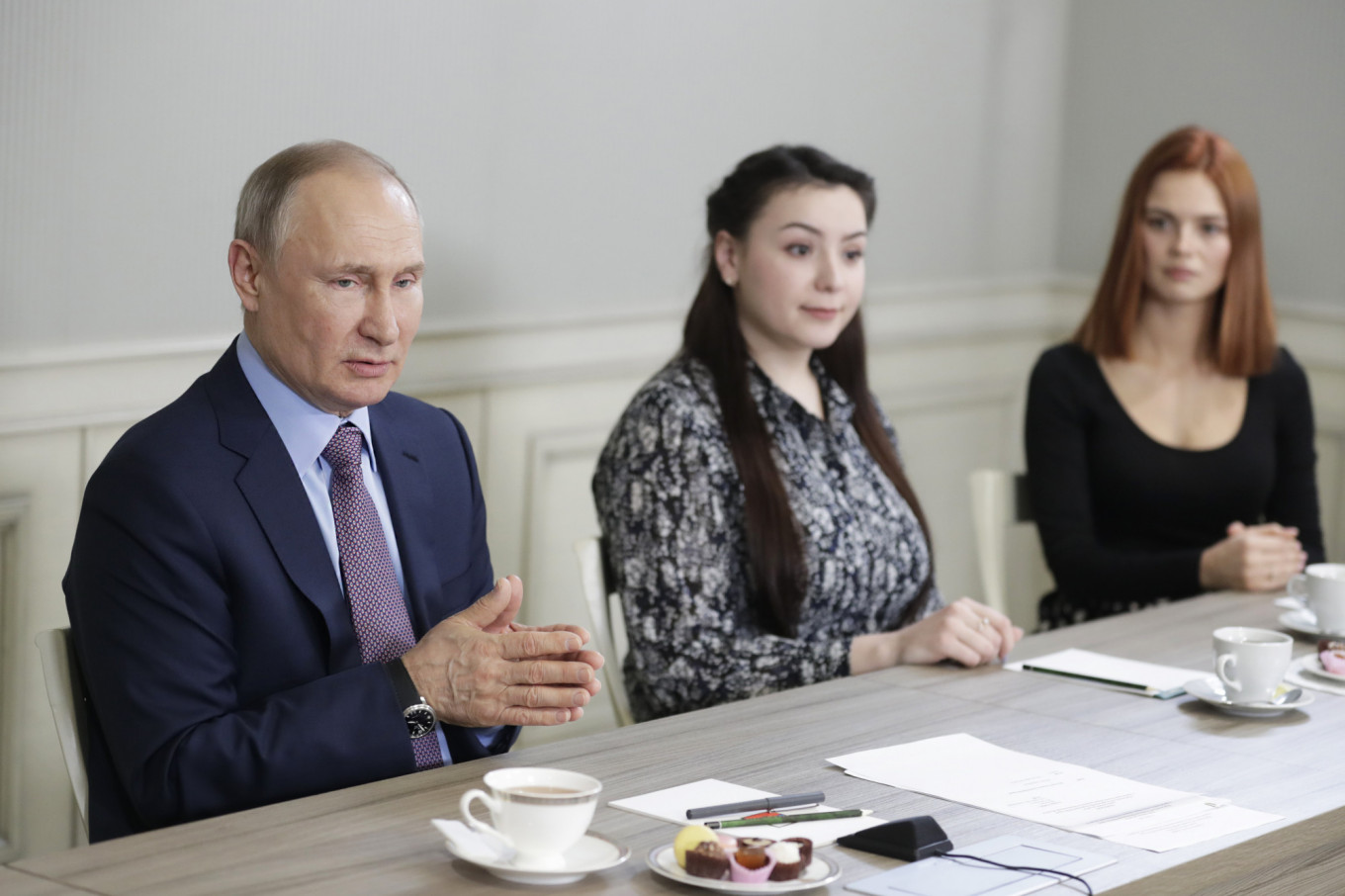
Russian President Vladimir Putin said Friday he would not bend the law to extend his term in power and is seeking to amend the constitution to secure the country’s future for decades to come.
Speculation has swirled over the 67-year-old president’s future after he unleashed a political storm in January by proposing major constitutional changes.
Putin has been in power for two decades and is due to step down in 2024 after his fourth Kremlin term ends.
“It’s not that I don’t want to (remain in power). I like my job,” Putin said at a meeting with members of the public in the central city of Ivanovo.
“But to resort to some sort of power scheme to preserve my mandate that would be unacceptable for the country or destroy it — that’s what I am afraid of, that’s what I don’t want to do.”
Waxing lyrical, he also said that he saw the presidency not as a job but as his “destiny.”
Putin has called for the constitution to limit the president’s time in office to a total of two terms instead of two consecutive terms as currently.
He reiterated he does not want to cancel term limits, which could allow him to remain president after his current term ends.
“It’s not that I am afraid of myself. I will not go mad,” he said.
“This isn’t about me. We are proposing amendments not for 5 or 10 years but at least for 30 to 50 years. This is not about now.”
The constitutional proposals call for strengthening the role of the State Council, currently an advisory body, but also bolstering the already strong role of the president.
Some Kremlin critics have suggested they are designed to preserve Putin’s grip on power after he leaves the Kremlin and that he may head the State Council after 2024.
But Putin appeared to rule out this scenario on Friday.
“What it would mean? It would mean a situation of dual power in the country, a situation that is absolutely destructive for Russia,” he said, adding the country needed a “strong” president.
In January, Putin said he wants to have a succession plan in place and does not want Russia to return to the Soviet-era practice of rulers dying in office without a transition plan.
He did not explain, however, why he began working on a succession plan two years into his fourth Kremlin term.
